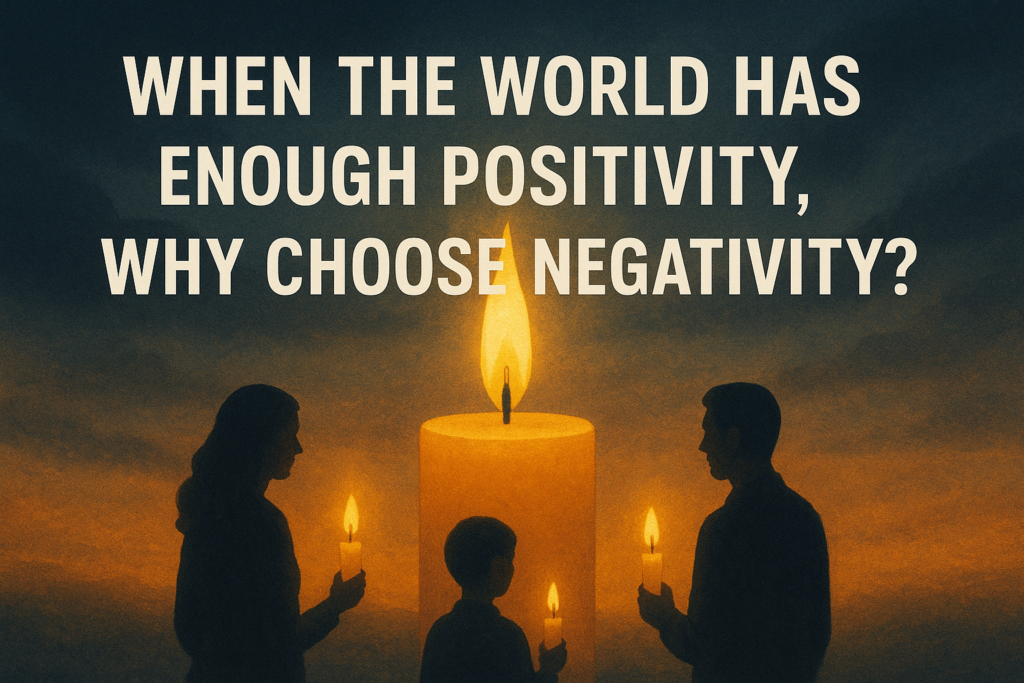In the fast-paced world we live in, money is often portrayed as the pinnacle of success. Whether it’s through advertising, social media, or our own societal norms, we are consistently fed the notion that wealth leads to happiness and fulfillment. Money is undoubtedly essential, providing access to comforts, security, and opportunities. But is it truly the greatest motivator in life? More importantly, can the pursuit of money truly supersede the peace of mind that many of us crave deep within?
The age-old debate between wealth and peace of mind often pits material success against mental and emotional serenity. In this blog, we will explore why, despite the undeniable importance of financial stability, peace of mind may hold the key to living a truly fulfilling life. Moreover, we’ll examine why more and more people are shifting their focus from financial gain to inner tranquility as their ultimate source of motivation.
The Role of Money as a Motivator
Before diving into why peace of mind might be more important, it’s essential to recognize the power of money as a motivator. From a young age, most of us are taught the importance of hard work, saving, and striving for success in our careers. Money is the universal tool that enables us to acquire the basics—shelter, food, healthcare—and the luxuries that add comfort and pleasure to life, such as vacations, gadgets, and a good education.
In many respects, the pursuit of money makes perfect sense. It can provide freedom, reduce stress, and afford experiences that might otherwise be out of reach. But can it truly serve as a long-lasting motivator that brings contentment? Many people find themselves endlessly chasing the next promotion, pay raise, or material possession, only to feel an unsettling void once those goals are achieved.
When Money Becomes a Trap
For some, the allure of money becomes so powerful that it starts to dominate their lives. Careers, friendships, and even family relationships can fall by the wayside in the relentless pursuit of wealth. This is often referred to as the “rat race”—the cycle in which people work harder and harder to achieve financial goals without ever stopping to assess whether these goals align with their personal values and well-being.
The irony here is that while money can provide access to things that bring temporary happiness, it often cannot fulfill deeper emotional and psychological needs. The security money offers is undeniable, but that security can come at the cost of time, health, and mental peace if we are constantly overworking ourselves or sacrificing relationships to gain more of it.
As wealth increases, so too can the complexity of maintaining it. Wealth brings its own set of stressors: managing investments, fearing economic downturns, and even dealing with others’ expectations or envy. It’s no wonder that the phrase “mo’ money, mo’ problems” has resonated with so many.
This brings us to a critical realization: while money can indeed motivate, the long-term fulfillment we seek often lies elsewhere.

The Power of Peace of Mind
On the other side of the spectrum is peace of mind, often referred to as the state of mental and emotional tranquility. It’s a feeling of contentment, where external circumstances do not sway your inner calm. In a world fraught with constant stressors—from work deadlines to social pressures—peace of mind is a rare yet powerful state to achieve.
When we ask ourselves what truly motivates us in life, most people, upon reflection, will admit that they seek happiness, fulfillment, and purpose more than material wealth. And in most cases, these things are intertwined with having peace of mind. You can own everything the world has to offer, but if you’re restless, anxious, or constantly worried, the joy of these possessions quickly fades.
Peace of mind allows individuals to navigate the ups and downs of life with grace and resilience. When we are at peace, we are better equipped to face challenges, handle stressful situations, and make decisions that align with our values. We aren’t as easily swayed by the lure of material gains, nor do we feel the need to compete with others in a never-ending race for more.
Why Peace of Mind Outweighs Money as a Motivator
So, why does peace of mind outweigh money as a motivator for many? Here are some compelling reasons why peace of mind should be at the forefront of our priorities:
1. Longevity of Fulfillment
Money can provide fleeting happiness, but peace of mind offers long-lasting fulfillment. Imagine reaching your financial goals, only to realize that you are stressed, anxious, and disconnected from the people around you. On the contrary, when you prioritize inner peace, your sense of fulfillment lasts much longer because it isn’t dependent on external factors. True peace comes from within and allows you to remain content regardless of your financial status.
2. Mental and Physical Health Benefits
The link between stress and health is well-documented. Constantly chasing financial success often leads to chronic stress, which in turn can have detrimental effects on your mental and physical well-being. High levels of stress can lead to burnout, depression, and a range of physical health problems such as heart disease and weakened immune function.
Peace of mind, on the other hand, contributes to better overall health. When you are mentally calm, your body can function optimally. You sleep better, experience less anxiety, and are more likely to make choices that support long-term health.
3. Freedom from Comparison
One of the negative side effects of a money-driven life is the tendency to compare oneself to others. With social media amplifying the so-called “success” of others, it’s easy to fall into the trap of comparing your financial standing, career progress, or lifestyle to someone else’s. This constant comparison can breed feelings of inadequacy, even if you are financially successful.
Peace of mind liberates you from this comparison game. When you’re content within yourself, you are less concerned with how others are living or what they have. This mental freedom allows you to focus on what truly matters to you, rather than what society dictates.
4. Better Relationships
One of the most overlooked aspects of a life focused solely on money is how it affects personal relationships. The stress of overworking and prioritizing wealth often leaves little time for family, friends, or personal connections. Over time, this can lead to strained relationships, loneliness, and even resentment.
Peace of mind fosters better, more meaningful relationships. When you’re not bogged down by stress or the pursuit of material gains, you can be more present with the people you care about. You can communicate openly, show empathy, and invest in nurturing your connections with others.
5. Enhanced Creativity and Problem-Solving
When the mind is at peace, it functions more effectively. Creativity, problem-solving, and critical thinking all flourish when you’re not overwhelmed by stress or preoccupied with chasing money. Many people find that they are most productive and innovative when they are in a calm state of mind.
This is because peace of mind allows space for deeper reflection and insight. You can think more clearly and make decisions that align with your long-term goals and values. This clarity often leads to better opportunities, even in the realm of financial success, as you approach challenges with a fresh perspective.
6. Money Follows Peace, Not the Other Way Around
Interestingly, when you prioritize peace of mind, financial success often follows as a byproduct. When you’re not consumed by the need to accumulate wealth, you can focus on the things that bring you joy and satisfaction. This often leads to greater productivity, higher-quality work, and, in turn, financial rewards.
When you pursue your passions and live in alignment with your values, success tends to come naturally. You may not become the wealthiest person in the world, but the wealth you do acquire will feel more meaningful because it won’t come at the expense of your well-being.
Striking a Balance: Can Money and Peace of Mind Coexist?
While it’s clear that peace of mind is a crucial component of a fulfilling life, it would be unrealistic to dismiss the importance of money entirely. Financial stability is necessary for most people to live comfortably, provide for their families, and pursue opportunities. The key lies in striking a balance where money serves as a tool for security and comfort, but not the ultimate goal in life.
Real-Life Stories of Individuals Choosing Peace of Mind Over Wealth
In the journey of exploring why peace of mind often outweighs the allure of wealth, we find profound examples in real-life stories. These individuals, who had all the material success they could desire, made the brave decision to shun wealth and comfort in search of something deeper—inner tranquility and spiritual fulfillment. Here are a few Indian personalities who chose to leave their lucrative careers and lives of comfort to embrace peace, spirituality, and simplicity.
1. Swami Prabhavananda Saraswati: From Silicon Valley to Ramakrishna Mission
A modern-day example that closely mirrors the spirit of renunciation is the story of Swami Prabhavananda Saraswati (formerly Praveen Kumar), a successful software engineer who worked in Silicon Valley. Praveen had a highly lucrative career and lived the quintessential American dream. However, despite his financial success and the comfort that came with it, he found himself longing for something more profound—a sense of inner peace and purpose.
He eventually left his career, wealth, and all material comforts behind to join the Ramakrishna Mission. He embraced the life of a monk, focusing on spiritual growth, meditation, and the service of others. The peace and fulfillment he sought weren’t found in wealth but in a simpler, more spiritually aligned way of life. Swami Prabhavananda’s journey is a modern-day testament to how peace of mind can take precedence over financial success, even in today’s highly competitive and materialistic world.
2. Laxmi Niwas Mittal’s Son-in-Law Turned Jain Monk: Bhavyaratna Vijayji
An extraordinary example of renouncing wealth for peace and spirituality is Bhavyaratna Vijayji, born into the affluent family of steel tycoon Laxmi Niwas Mittal. Mittal’s son-in-law, Bhavyaratna was set for a life of luxury and privilege. However, despite having access to immense wealth and all its accompanying comforts, he felt unfulfilled.
In 2019, Bhavyaratna embraced Jainism and decided to live a life of complete renunciation. He became a Jain monk, giving up all his material possessions, including any claim to the vast Mittal fortune. His decision to follow the path of Jainism and detach from worldly life reflects the deep-rooted desire for peace and contentment that material wealth could never provide.
This move, which shocked many, is rooted in the Jain philosophy of ahimsa (non-violence), minimalism, and renunciation of worldly pleasures to attain spiritual enlightenment and inner peace. His choice highlights the fact that no amount of material wealth can replace the peace and serenity one finds in spiritual fulfillment.
3. Acharya Prashant: From IIM and Civil Services to Spiritual Leadership
Acharya Prashant was once a brilliant student who graduated from prestigious institutions such as IIT Delhi and IIM Ahmedabad. He also served in the Indian Civil Services, a career that many Indians aspire to for its prestige and perks. Despite his tremendous academic and professional success, Acharya Prashant found himself questioning the ultimate purpose of life.
He renounced the conventional path of wealth and success to dedicate himself to spiritual exploration and self-awareness. Today, Acharya Prashant is a well-known spiritual leader and the founder of the PrashantAdvait Foundation, where he teaches about Vedanta, spirituality, and self-realization. His work focuses on guiding people toward peace of mind, away from the distractions of materialism and consumerism.
Acharya Prashant’s journey exemplifies how intellectual and professional accomplishments, while significant, may not be sufficient for a fulfilling life. He found true motivation and peace through spiritual introspection rather than the pursuit of financial gain.
4. Vishal Bhardwaj: The Entrepreneur Turned Monk
Another contemporary example is Vishal Bhardwaj, an entrepreneur who ran a successful business in the tech industry. Like many in his field, Vishal lived a high-pressure, financially rewarding life. But he felt an inner void despite the success and money he had achieved.
He made the radical decision to leave behind his business, donate his wealth, and embrace monastic life in pursuit of inner peace. Bhardwaj’s renunciation underscores the truth that many successful professionals experience: that material success does not necessarily bring long-term contentment. His new path as a monk allowed him to experience spiritual fulfillment and the tranquility he had been missing in his life as a successful entrepreneur.
5. Pravin Togadia: From VHP Leader to Peace Advocate
Dr. Pravin Togadia, a well-known leader of the Vishva Hindu Parishad (VHP) and a qualified oncologist, decided to leave his high-profile role in the political sphere. While he hasn’t fully renounced his material possessions, he has gradually shifted his focus toward more peaceful, humanitarian endeavors after a period of aggressive activism.
Dr. Togadia has now dedicated his life to more peaceful work, helping marginalized communities and advocating for healthcare access for the poor. His transition from a life filled with political clout and wealth to one focused on service and peace is a reminder that even those who achieve fame and power may seek deeper satisfaction from a quieter, more peaceful existence.
Here are some strategies for balancing financial success with peace of mind:
1. Set Boundaries in the Workplace
Many people struggle to balance work demands with personal time, often sacrificing their peace of mind in the process. Setting clear boundaries around work, such as not checking emails after a certain time or taking regular breaks, can help maintain your mental well-being while still pursuing career goals.
2. Prioritize Experiences Over Possessions
Research shows that people often derive more happiness from experiences than from material goods. Instead of focusing on acquiring more things, try to invest in experiences that bring you joy, such as travel, hobbies, or spending time with loved ones. These experiences contribute to peace of mind and create lasting memories.
3. Practice Gratitude
Cultivating gratitude can have a profound effect on your peace of mind. By regularly reflecting on the things you’re thankful for—whether it’s your health, relationships, or opportunities—you can shift your focus away from the constant desire for more. Gratitude helps foster contentment, which is a cornerstone of peace.
4. Create Financial Goals Aligned with Your Values
Instead of chasing arbitrary financial milestones, set financial goals that are aligned with your personal values. This might mean saving for a family vacation, investing in your health, or starting a business that you’re passionate about. When your financial goals reflect your true desires, the pursuit of money becomes less stressful and more meaningful.
5. Practice Mindfulness and Meditation
Mindfulness and meditation are powerful tools for cultivating peace of mind. These practices help you stay present in the moment and reduce anxiety about the future. By regularly taking time to center yourself, you can approach both financial and personal challenges with a calm and focused mindset.
Conclusion: The Wealth of Inner Peace
At the end of the day, while money may motivate us in the short term, peace of mind is what sustains us in the long run. The drive for financial success is a powerful force, but without inner tranquility, it can lead to a life filled with stress, comparison, and unfulfillment. When we shift our focus to achieving peace of mind, we open ourselves up to a life of contentment, purpose, and better health—one where money serves as a tool, not a master.
The pursuit of peace of mind often leads individuals to make life-changing decisions, leaving behind wealth, prestige, and comfort in favor of simplicity, service, and spiritual growth. In the stories of Swami Vivekananda, Swami Prabhavananda Saraswati, Bhavyaratna Vijayji, Acharya Prashant, and others, we see that the fulfillment they sought couldn’t be found in the material world, no matter how successful they were.
Their journeys remind us that peace of mind is an invaluable motivator. It may not always lead to financial wealth, but it offers a kind of richness that no amount of money can buy—a life of inner tranquility, purpose, and true happiness. When individuals find the courage to prioritize peace over material gain, they often find that everything else they truly need falls into place.
Ultimately, the greatest wealth lies not in our bank accounts but in our ability to live with peace, balance, and joy. If given the choice, choose peace of mind. With it, everything else falls into place.
Disclaimer:
The author’s views are his or her own. The facts and opinions in the article have been taken from various articles and commentaries available in the online media. Eastside Writers nor the writer takes any responsibility or obligation for them.
Note: Contact our Writers at www.eastsidewriters.com for writing Blogs/Articles on any niche. We have experts in various domains from Technology to Finance and from Spirituality to Lifestyle and Entertainment.






